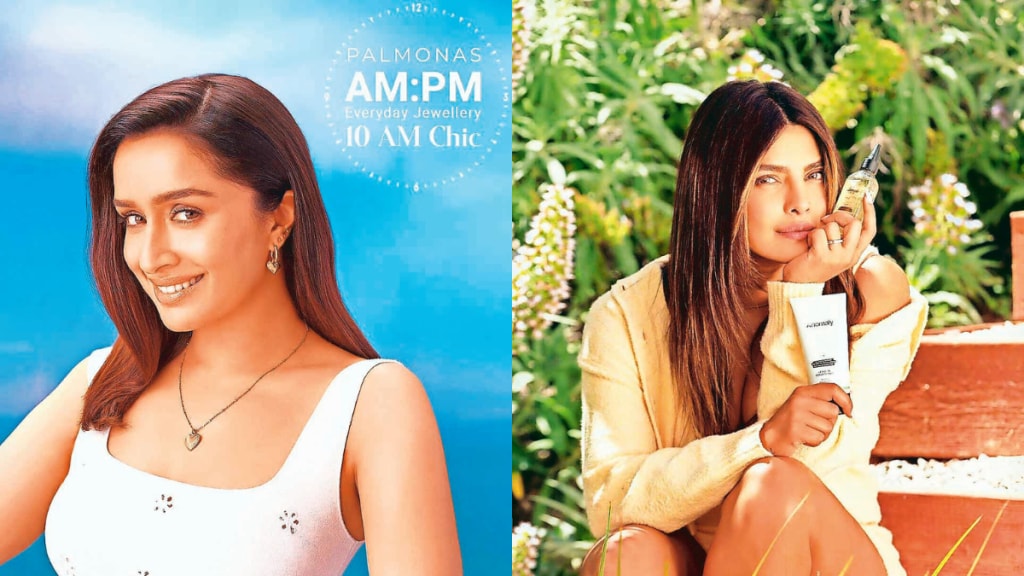It’s only been a year since national award winner Kriti Sanon launched her skincare brand Hyphen, but she appears confident — her products have what it takes to be “the first Rs 100-crore D2C brand in India”, she says. Sanon isn’t the only one hoping for fans to make a beeline for her brand.
To say that there’s been a celebrity-beauty brand boom over the past five years in India would be an understatement. There are over a dozen such brands sold in the country, led by haircare products, skincare lines and colour cosmetics. Not all seem to be created equal though, if sales trends and top-of-mind recall are anything to go by. While some brands have seen good early momentum, others have done little to enhance the celebrity’s personal brand.
Take Priyanka Chopra Jonas’s hair care brand Anomaly, which, according to Statista, posted $542.7 million in revenue in the US last year. The product comprises a range of shampoos, conditioning masks, dry shampoos and conditioners, with the most-searched product from her collection being her hair oil. In India, these products are available on Myntra and Nykaa and retail in the `700 to `1,600 bracket but the brand has been slammed for selling ‘overpriced’ products. And there is very little sales data forthcoming from the brand in India to figure out which direction it is headed.
When Deepika Padukone’s self-care brand 82°E was launched a year-and-a-half ago, the stated target was to reach an ARR or annual recurring revenue (a term used in subscription-based businesses to indicate the revenue that is committed) in 6-8 months. At the end of its first year, the company again said it was aiming to reach the `100-crore ARR mark. While the brand has added more products and expanded its online and offline presence, it is the US, Singapore, and Australia — not India — that are its top 3 markets.
Or take Shraddha Kapoor’s Palmonas, which sells primarily through Instagram, its official website, and has a single store in all of India, in Koregaon Park (Pune).
No one is saying the market size is insignificant or that the potential is not worth the effort. As per Statista, the beauty and personal care market in India is projected to generate a revenue of $31.51 billion in 2024.
So, while the industry is growing, what will it take for these celebrity-driven brands to gobble up a larger share of the market? Given the current trends, will these brands be able to stand the test of time?
Noise + substance = success
For one, Sunny Leone insists she knows the game all too well. “I am the only celebrity who owns her brand 100%,” she says, indicating the other ventures are co-founded or involve several stakeholders. The biggest challenge she faces is to make people understand that she is not just a brand ambassador but the owner who is also ‘100% involved’ in the product formulation. With a 22-member team, Leone’s affordable luxury makeup brand has 250 stock keeping units.
Brand experts also feel not all celebrity brands are doomed just because the owner is a performer and not known to be a hardcore business person. “Celebrities can build a fan base that’s fiercely loyal and trusts their recommendations. This built-in audience gives them a leg up,” says Ishan Agarwal, director of brand and creatives, CashKaro.com. The key to success is — unsurprisingly — quality over hype. “If they can combine their star power with truly innovative and high-quality products, they can create a strong niche,” he adds.
The biggest hurdle in the way of these brands remains price. Yash Kulshresth, chief creative officer of Atom Network, points out, “Most of these brands come at a cost that only a fraction of Bharat can afford on a regular basis.” “Success lies in offering a unique value proposition and maintaining high standards to justify the price,” adds Vipul Gupta, founder of D2C skincare brand Re’equil.
Celebrity cosmetic dermatologist Dr Rashmi Shetty has a word of caution: “Small” players might not have the wherewithal to carry out extensive R&D to back the products they are trying to sell to their fans-turned-customers. “It’s not about big players having bigger budgets and wider distribution networks. It’s about big players having research-based, science-based products,” she explains. “The process of manufacturing is crucial — the precision, hygiene, and science involved in preserving and packaging products are extensive. It is almost impossible for smaller players to achieve that level of professionalism due to lack of funds.”
So what will it take? “We understand celebrity influence can be a powerful motivator, but one has to bridge the gap between inspiration and results,” sums up Niharika Jhunjhunwala, founder of ClayCo, a brand that promises clear, glassy skin within a week of use.


